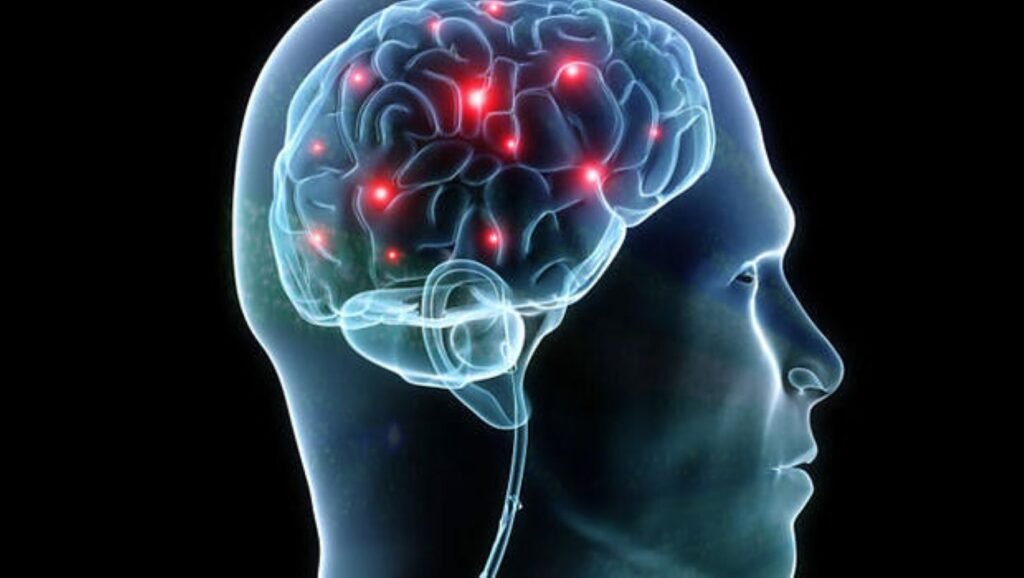Have you ever wondered whether those horoscopes you read actually reflect who you are? With astrology influencing billions of people worldwide, the ancient practice continues to captivate modern minds despite our advanced scientific understanding. The cosmic connection to personality has intrigued humanity for millennia, yet the findings from rigorous scientific research paint a very different picture than what astrologers claim.
Scientists have spent decades investigating whether our zodiac signs truly shape our personalities. The results might surprise you more than any fortune teller’s prediction ever could.
The Great Scientific Test That Shook Astrology’s Foundation

Large-scale scientific studies have systematically tested whether zodiac signs influence personality traits by examining thousands of participants. One groundbreaking investigation studied over 3,000 young men and used standardized personality measurements to detect any correlations with their birth signs. The comprehensive analysis revealed no statistical relationship between zodiac signs and personality characteristics.
A 2017 study published in The International Journal of in Society examined 65,268 job seekers who completed professional personality assessments. Researchers specifically selected participants born on identical dates but under different zodiac signs to create the most controlled comparison possible. The investigation found absolutely no statistical similarities among people sharing the same star sign.
This evidence directly contradicts the fundamental premise that celestial positions at birth determine our behavioral tendencies. When scientists applied the same rigorous standards used in medical research, astrology’s claims simply couldn’t withstand scrutiny.
The Massive Chinese Study That Demolished Zodiac Myths

The largest personality study involving zodiac signs recruited over 173,000 Chinese participants between ages 18 to 60. Each person completed comprehensive assessments measuring the Big Five personality traits while providing their exact birth dates. Despite the enormous sample size, researchers found zero significant associations between any of the 12 astrological signs and personality characteristics.
The study’s results definitively showed that birth signs had no influence whatsoever on personality development. Even more striking, they discovered that believing in astrology made absolutely no difference to actual personality traits.
These findings represent some of the strongest evidence against astrological personality claims ever produced. When nearly 200,000 people show no zodiac-personality connection, the scientific case becomes overwhelming.
Real Biological Forces Shaping Your Personality

The genuine biological basis of personality involves complex brain systems and neural mechanisms that scientists are actively studying. Current research focuses on brain structures, neurotransmitter systems, and the biochemical processes underlying reward, motivation, and behavioral regulation.
Modern neuro recognizes five major personality dimensions rooted in biological mechanisms: neuroticism, extraversion, openness to experience, agreeableness, and conscientiousness. These traits represent relatively stable patterns of thoughts, feelings, and behaviors that reflect genuine neurobiological foundations.
Your brain’s architecture genuinely influences who you are, but it operates through measurable chemical processes rather than mystical planetary alignments. The dopamine and serotonin systems in your head carry far more weight than distant celestial bodies ever could.
Genetics: The True Architect of Your Character

Twin and adoption studies consistently demonstrate that human personality shows 30 to 60 percent heritability, meaning genetics play a substantial role in shaping individual differences. However, hundreds of genetic variants contribute to this complex development, making personality far more intricate than any astrological system suggests.
Recent genome-wide association studies have identified specific genetic variations linked to personality traits. Researchers have discovered 62 new genetic locations associated with neuroticism alone, and over 200 genetic sites influence all five major personality dimensions combined.
Modern genetic research reveals that more than 700 genes influence temperament through molecular processes affecting synaptic plasticity and long-term memory formation. These discoveries show personality emerges from sophisticated biological machinery operating within your cells.
The complexity of genetic personality architecture makes astrology’s simplified 12-category system appear almost comically inadequate by comparison.
Birth Timing Effects That Actually Exist

Season of birth does appear to influence some aspects of personality development, but through environmental rather than astrological mechanisms. Research shows that the seasonal environment during early development can affect emotional and behavioral regulation in measurable ways.
Scientific studies have identified several biological pathways through which birth season impacts development. Maternal exposure to seasonal viruses, variations in daylight affecting serotonin production, and seasonal affective disorder in pregnant mothers can influence fetal brain development.
Studies consistently find that men born in autumn or winter show elevated novelty-seeking behaviors compared to those born in spring. This pattern appears linked to dopamine system vulnerability during critical developmental periods rather than cosmic influences.
These genuine seasonal birth effects operate through understood biological mechanisms, not mystical planetary forces.
Why Smart People Fall for Astrological Illusions

Research investigating who believes in astrology reveals surprising patterns. Narcissism emerges as the strongest predictor of astrological belief, while higher intelligence correlates with reduced acceptance of zodiac claims. These findings suggest astrology may both attract and reinforce certain personality differences.
Confirmation bias plays a crucial role in maintaining astrological beliefs. Believers tend to selectively remember predictions that seemed accurate while forgetting failed forecasts. They also struggle to distinguish between genuinely specific insights and vague statements that could apply to anyone.
Self-stereotyping effects occur when people familiar with their supposed zodiac traits rate themselves as matching those characteristics. However, this reflects learned expectations rather than actual personality differences, since astrologically knowledgeable individuals show greater alignment with their sign’s supposed traits.
Understanding these psychological mechanisms helps explain astrology’s persistent appeal despite scientific refutation.
The Barnum Effect: How Astrology Tricks Your Brain

The Barnum effect describes people’s tendency to rate vague, generally applicable personality descriptions as highly accurate for themselves personally. Astrological readings exploit this cognitive bias by presenting statements broad enough to seem relevant to almost anyone.
Professional astrologers craft their interpretations using language that feels specific while remaining universally applicable. Phrases like “you have untapped potential” or “you sometimes doubt your decisions” resonate with nearly everyone’s experiences.
Modern people remain susceptible to magical thinking patterns despite scientific education. This psychological tendency helps explain why astrological beliefs persist in technologically advanced societies where rational thinking generally prevails.
The human brain’s pattern-seeking nature makes us vulnerable to seeing meaningful connections where none actually exist.
Dangerous Consequences of Zodiac Discrimination

Research reveals that astrological beliefs can fuel harmful discrimination in real-world contexts. Studies in China found that certain zodiac signs carry negative stereotypes leading to unfair treatment in social and professional situations.
Some employers, dating services, and even medical professionals have been documented making decisions based on clients’ supposed astrological characteristics. This represents a form of prejudice as scientifically baseless as racism or sexism.
The social impact extends beyond individual bias to reinforce systems of superstition that undermine critical thinking in society. When people make important life decisions based on planetary positions, the consequences can affect careers, relationships, and personal development.
Neuro Reveals Your Real Personality Networks

Modern brain imaging studies identify specific neural networks underlying personality traits. The reticular formation and limbic system influence arousal and consciousness patterns that shape individual differences. Serotonin systems correlate with emotional stability while dopamine networks affect openness and creativity.
Genetic investigations focus on neurotransmitter systems, particularly serotonin and dopamine pathways, along with brain regions like the frontal and temporal lobes. These biological markers provide genuine insights into personality development through measurable neurochemical processes.
Research identifies two major molecular pathways responding to environmental stimuli: the Ras-MEK-ERK and PI3K-AKT-mTOR cascades. These systems help maintain cellular balance while adapting to changing conditions through established biochemical mechanisms.
Your personality emerges from sophisticated neural networks operating through well-understood biological principles.
Environmental Factors That Actually Matter

Stress significantly remodels brain structure, causing atrophy in the prefrontal cortex and hippocampus while expanding the amygdala. Environmental interventions can alter human physiology just as dramatically as they do in other animals.
Early childhood experiences, particularly those affecting emotional and behavioral regulation, have lasting impacts on personality development. Environmental factors during critical developmental periods influence antisocial behavior patterns and social adjustment throughout life.
Maternal nutrition, viral infections, and vitamin deficiencies during pregnancy affect fetal brain development in measurable ways. These genuine environmental influences operate through understood biological pathways rather than mystical connections.
Real environmental factors shape personality through traceable cause-and-effect relationships.
The Evolutionary Logic Missing from Astrology

Evolutionary psychology explains many behavioral patterns as adaptations that enhanced survival and reproduction throughout human history. These biologically-rooted tendencies reflect millions of years of natural selection rather than arbitrary cosmic timing.
Astrology offers no plausible evolutionary mechanism explaining how planetary positions could influence human psychology. Natural selection would have eliminated any dependence on celestial mechanics that didn’t provide survival advantages.
The traits astrology claims to predict – like sociability, creativity, or emotional stability – clearly have evolutionary significance for human success. However, they developed through genetic and environmental pressures, not astronomical coincidences.
Modern Technology Exposes Astrological Flaws

NASA scientists point out fundamental problems with astrological calculations. The original zodiac system omitted an entire constellation (Ophiuchus), and ancient astrologers arbitrarily assigned equal time periods to each sign despite the sun pointing at different constellations for varying durations.
The disconnect between zodiac symbols and actual constellations grows larger each year due to precession – the gradual shift in Earth’s rotational axis. Modern astrology operates completely independently from the celestial objects it claims to represent.
These astronomical realities demolish astrology’s already weak foundation. When the system fails to accurately track the very celestial objects it supposedly draws meaning from, its credibility evaporates entirely.
Conclusion

has systematically dismantled every major claim astrology makes about personality. Multiple large-scale studies involving hundreds of thousands of participants consistently find zero correlation between zodiac signs and psychological traits. Meanwhile, genuine research reveals the fascinating biological mechanisms actually shaping who we are – from genetic variations to brain chemistry to evolutionary adaptations.
Your personality emerges from an intricate dance between your genes, brain development, and life experiences. This reality proves far more complex and meaningful than any astrological system could capture. The stars may inspire wonder and poetry, but they don’t determine whether you’re outgoing or shy, creative or practical, optimistic or cautious.
What do you think about trading mystical explanations for scientific understanding? The truth about human personality turns out to be far more incredible than fiction.

Hi, I’m Andrew, and I come from India. Experienced content specialist with a passion for writing. My forte includes health and wellness, Travel, Animals, and Nature. A nature nomad, I am obsessed with mountains and love high-altitude trekking. I have been on several Himalayan treks in India including the Everest Base Camp in Nepal, a profound experience.




